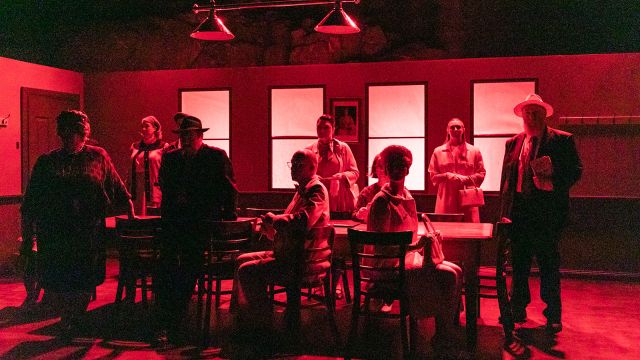Twelve Angry Jurors
We have nothing to gain or lose by our verdict. We should not make it a personal thing.
And, yet they do. Well, this is how people behaved back in 1954 when Rose wrote this fly-on-the-wall, jury room drama; angry, prejudiced, self-centred, petty. This is not how we debate matters these days, is it? When truth is even more elusive? You have only to “read the comments” to realise that respectful and reasoned debate so easily degenerates into personal vendetta, acrimony and threats of death. Twelve Angry Jurors is, for this reason, a classic of enduring relevance.
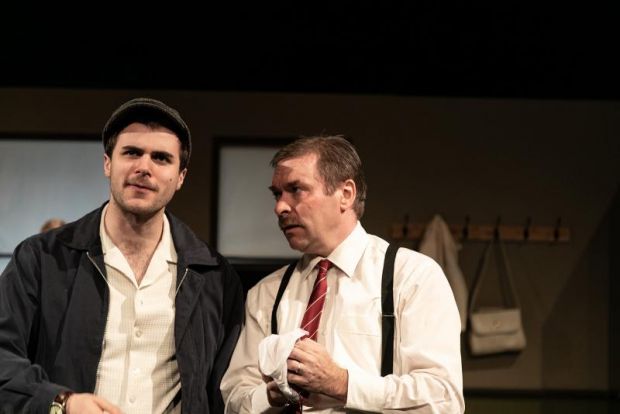
This script is faithful to the original, combining the male and female casting versions – the Reginald Rose original and the Sherman L. Segel adaptation. Director Robert Jarman modified the script(s) to accommodate the seven women and five men who were cast before roles were allocated or gendered. There is integrity here in honouring the script and relying on the inherent skill of the performers.
Oft times, the work of the director is only evident when it is deficient. This production, however, is infused with Robert Jarman’s intelligent guidance. Every interaction reveals a depth of understanding of character and motivation. Every moment is nuanced. Every physical action is an expression of the interpersonal dynamics. The ebb and flow of argument has a terpsichorean grace. Within the four-wall of a box set, two hours of vitriol is as visually compelling as the finely honed script.
A sense of the period and tone is established by an initial dramatic tableau which includes a voiceover of juror instruction given by Chief Justice Alan Blow AO. The set is both claustrophobic and 1950s beige, whilst simultaneously inveigling the audience into vicarious participation.
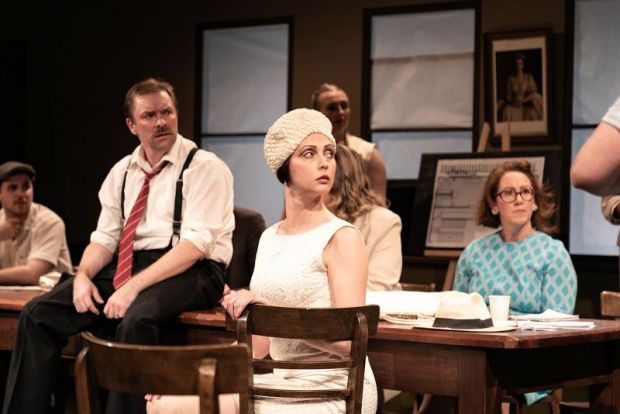
The cast is exceptional. The actors are well chosen, all with impressive theatrical resumes. Every actor gives a finely nuanced and highly skilled interpretation of their character. The audience knows these people and have met someone like them, if not in real life, then in the digital realm. It would be lacking generosity not to mention them all.
Juror One, the exasperated foreman, is played by Paul Levett. This reviewer very much enjoys Levett in his serious roles.
Juror Two is taken by Virginia Kamino. This versatile actor can be dryly funny and gives the role a high degree of verisimilitude.
Juror Three is performed by Bil Heit. Heit takes a very objectionable character and moves adeptly between drama and comedy. Heit’s hair and costume were delightful. She is a 1954 “Karen”.
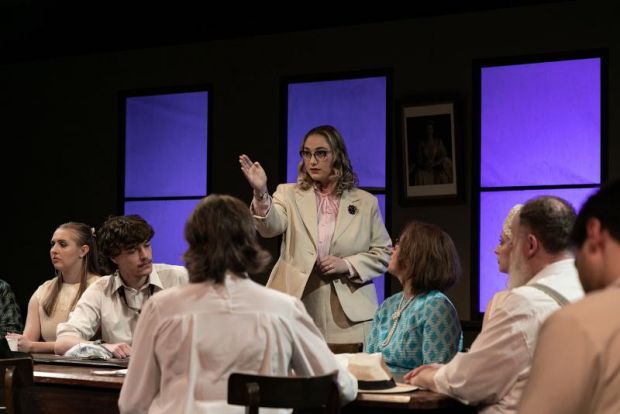
Juror Four is Benedicta McGeowan. Often seated centrally, McGeowan is a rational anchor and mediator. More reasonable than some others, her capitulation carries weight.
Juror Five is played by Tommy Howard. Howard is a fine comedian who has found restraint in this role, and he imbues many small moments with meaning.
Juror Six is given intelligently by Kate Choraziak. Six is thoughtful and holds back until they have a meaningful contribution.
Juror Seven is obnoxious and repulsive, and Paul Dellas enjoys playing the character in an entirely believable manner.
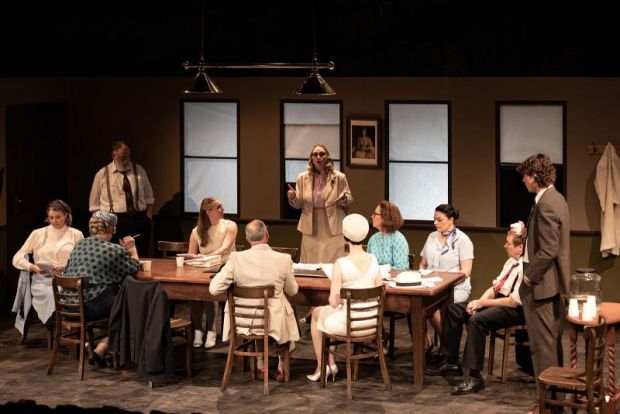
Juror Eight is thoughtfully portrayed by Clare Pearson. Pearson has the significant part of the juror who stands up to the weight of others’ opinion, seeding doubt where certainty seemed inevitable. As an advocate for truth, Pearson models calm, compassionate, reasonable argument as well as the bravery to stand against the tide.
Juror Nine is played by Di Richards in delightful wig. Humour bubbles under the surface of her performance in which wry comments serve to break the tension.
Juror Ten is taken by Pebberberry Director Chris Hamley. Another obnoxious and prejudiced character, Juror Ten is a great role that could easily be overdone. The character’s summer cold is enough to indicate that Ten is a toxic influence. Hamley is active and intrusive like an internet virus.
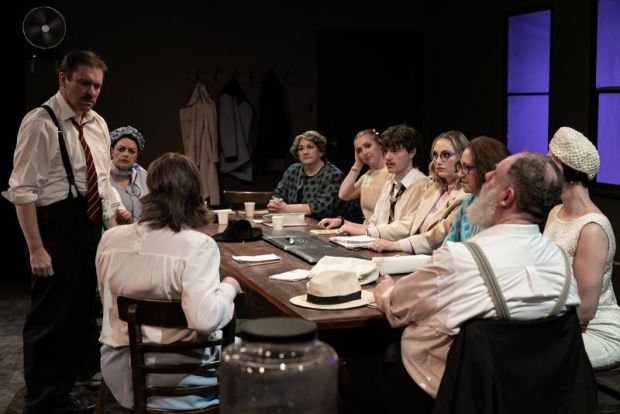
Juror Eleven is the dignified, foreign-born commentator on the justice system. Arin Dean’s restrained demeanour makes every word from Eleven’s mouth worthy of attention.
Juror Twelve is played by a charmingly quirky hat on the beautiful head of Laura White. Ditzy and easily swayed, White plays the amiable idiot who makes a mockery of universal suffrage.
The two hours spent in the jury room is a roller coaster experience. This is edge-of-your-seat drama, with a surprising amount of comedy infused. Twelve Angry Jurors is important, relevant and theatre at its best
Anne Blythe-Cooper
Photographer: Paul Guo
Subscribe to our E-Newsletter, buy our latest print edition or find a Performing Arts book at Book Nook.

